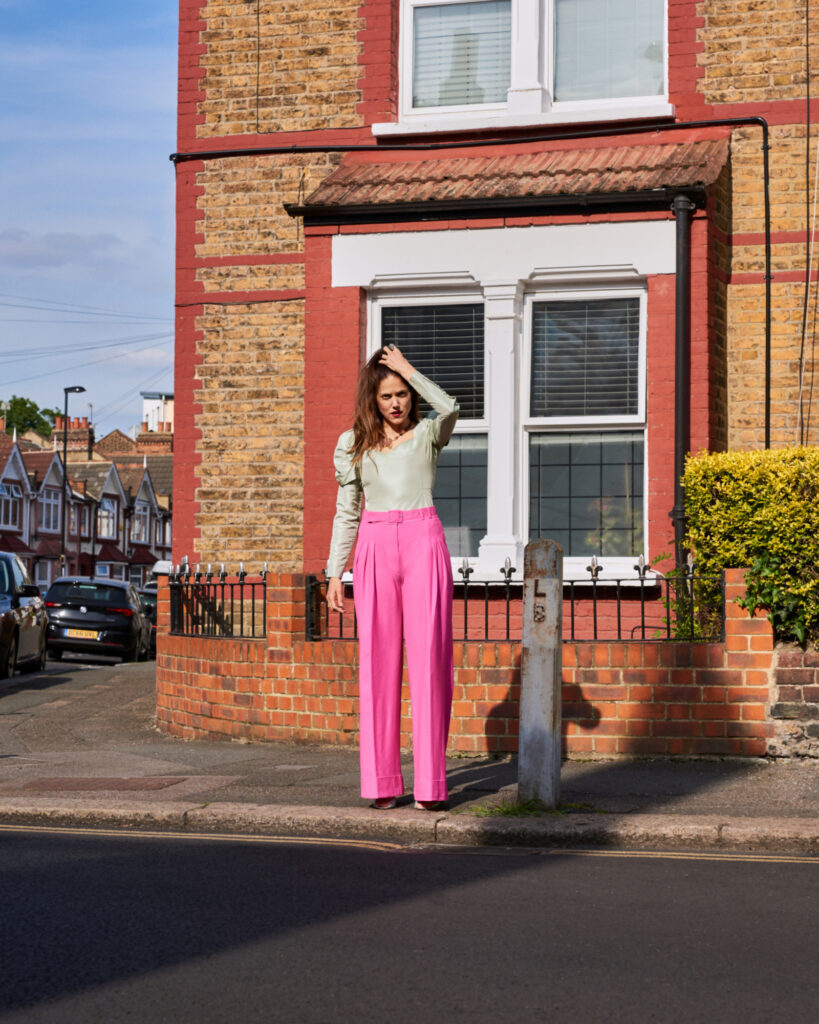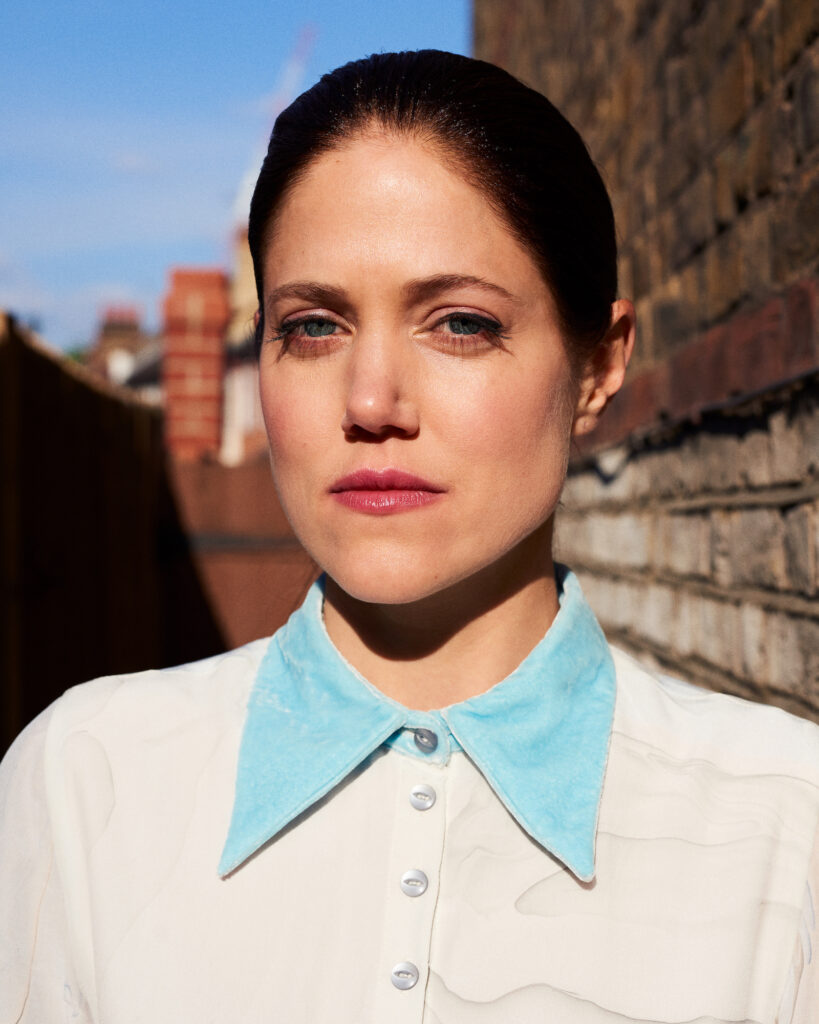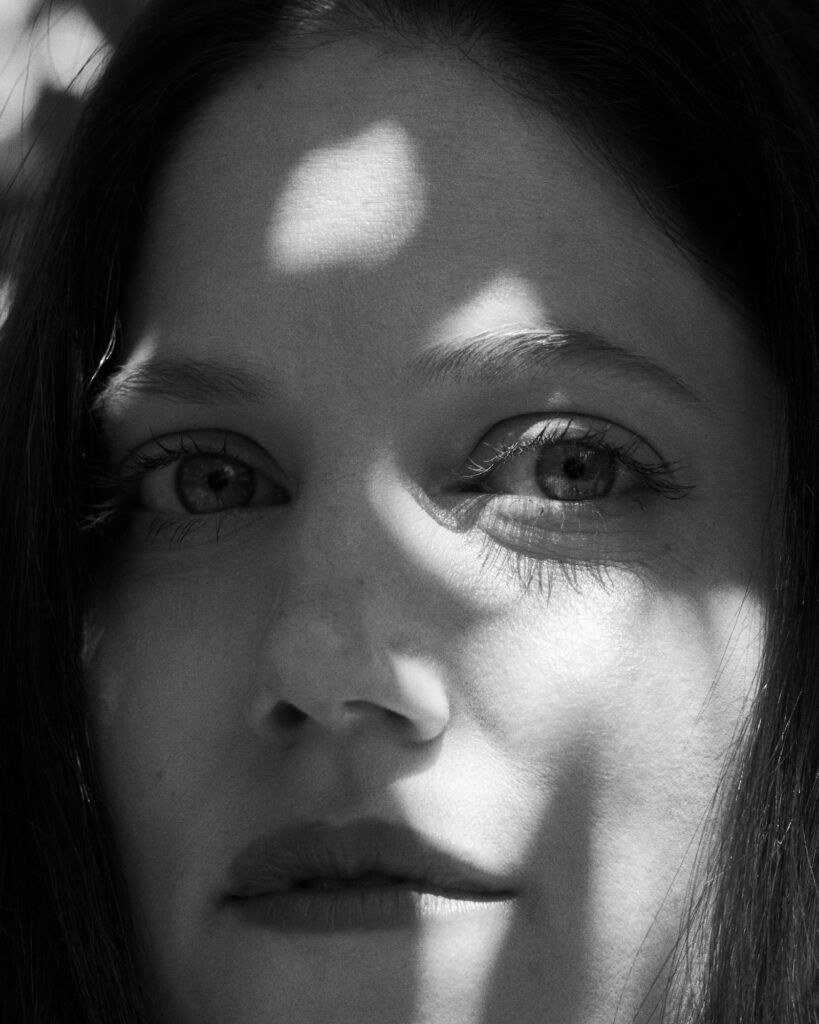
Charity Wakefield is an English actress and producer. Attending the Oxford School of Drama, she got her start primarily in theatre, appearing in many notable roles, including William Shakespeare in “Emilia” at The Globe. Her film and television bibliography is also impressive, starring in BBC’s “Doctor Who,” “Wolf Hall,” and “Serena.” Wakefield’s newest role comes Hulu’s critically-acclaimed new series, “The Great,” which stars Elle Fanning and Nicolas Hoult and is written by “The Favourite” screenwriter Tony McNamara. We caught up with the actress, who is quarantined at her home in London, to talk gardening, playing The Bard and her fun and frivolous character in “The Great.”
Interview by Sydney Nash.
Q: I have to acknowledge that this interview comes in the midst of the COVID-19 pandemic. So I’d first like to ask, how have you been doing? Where are you spending your quarantine?
A: I’ve been doing fine, thank you for asking. I am lucky enough to have a garden, and I’ve have been spending a lot of time in it, growing vegetables, mostly, and some flowers. I have been growing plants from seed, which is a learning curve, because they all require slightly different growing conditions. Pumpkins, courgettes, beansand tomatoes will all germinate easily in a bit of earth, on a window sill, at room temperature. I only had a few garden pots to use, so I’ve been experimenting with using milk bottles, beer cans and yogurt pots instead.
The plants don’t mind as long as you put some holes in the base of the tub and water them well. I’ve had quite a few left over, so I’ve been giving them away to people in my street. I think a lot of people are getting back to nature for comfort and really appreciating the smaller things.
Q: How have you been filling your days and what’s been bringing you comfort during this time?
A: Springtime is my favourite time of the year, and I am thankful for this time to really appreciate it. Some plants are tougher to grow: my Viola seeds wouldn’t germinate until I put them on top of the fridge, at the back and in the dark. I’ve been getting tips online from Monty Don, Ron Finlay and my friend and flower designer/grower Hazel Gardiner. It’s been a time for introspection, healing and calm for me, but only because thus far, I haven’t experienced the tough side of the virus. My heart goes out to the people that have suffered badly or lost loved ones. It’s a totally strange and frightening time. But I am trying to find light in the dark and appreciate what nature has to offer.
Q: Tell me about your first introduction to performance. When did you decide that you wanted to be an actor?
A: I took a gap year out of education to earn money and travel at 18. During that time, a
I had always wondered if I might try and do acting as a career, my Grandpa had been one, (James Hayter), but that play really just hooked me into it. It’s just so wonderful to work on a live show with a group of people. I really hope that after this lockdown we will be able to support theatre as soon as possible. Humans need contact, conversation, shared experiences. It’s such a part of the fabric of life, and it can be transformative.
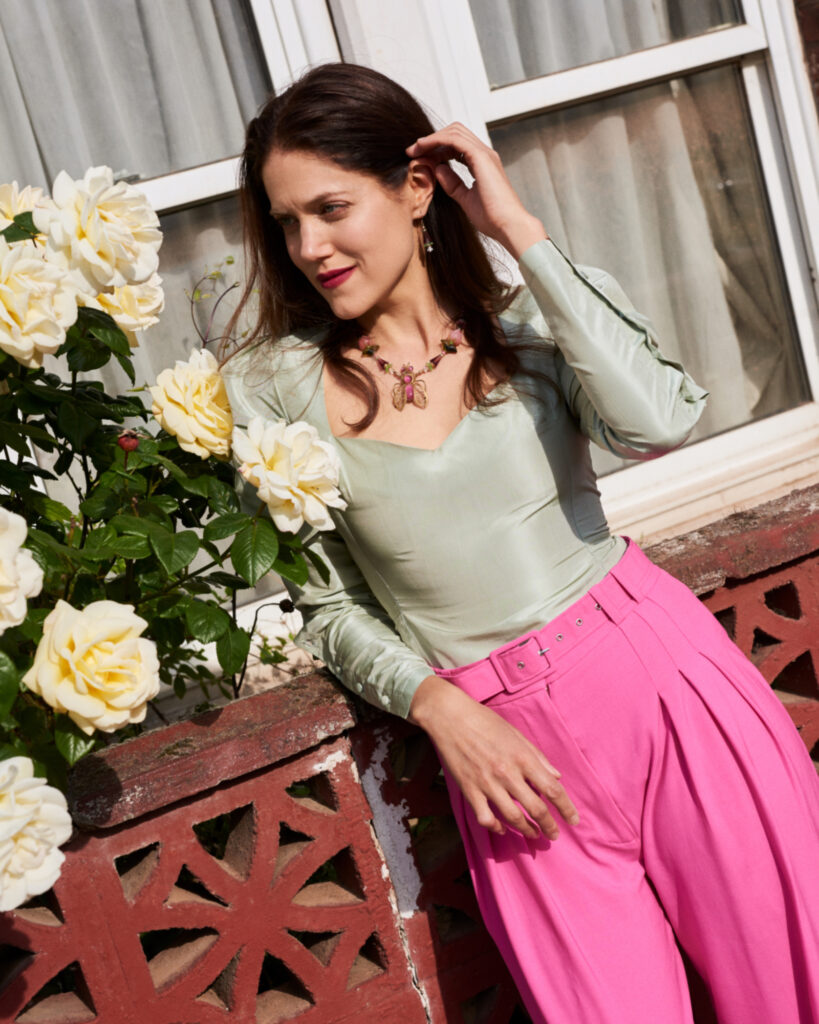
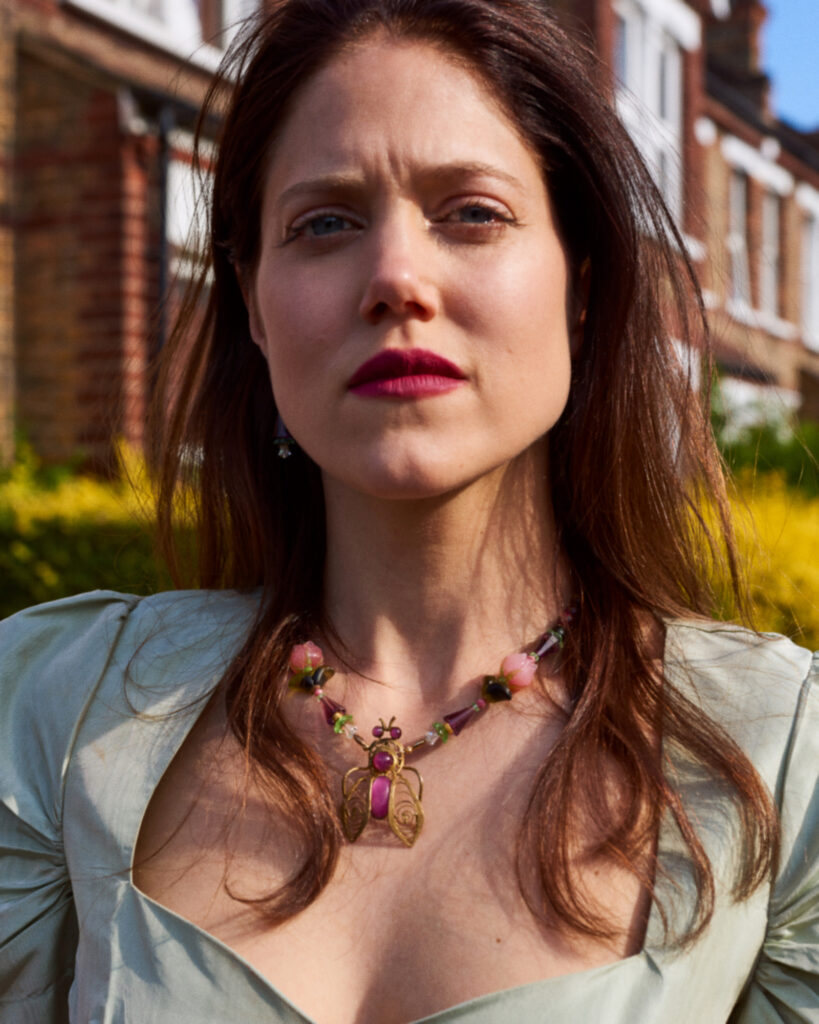
Q: You graduated from the Oxford School of Drama and began working primarily in theatre. What sets theatre apart from film and TV for you?
A: With theatre, as the performer you are in the same room as the audience whilst they experience the play. It’s quite an extraordinary thing, really, that both you and the audience agree this silent contract of make-believe, that you will pretend to be someone doing something on the stage, and the audience will pretend to believe it’s real. When we did Emilia, there was a very sad moment, when Emilia’s baby dies. The play, unusually, is very much about female experience and that subject matter is rarely, if ever, explored in stories which are typically male-oriented. The resulting connection in the theatre was palpable. The audience regularly wept, and it gives me goosebumps thinking it about it now. It was a shared experience of connection to grief. People were connecting to their own life. Importantly, no phones to interrupt the space and real humans were performing, which allows for total concentration. To be there witnessing the audience reaction is a privilege. It can also be hugely joyful.
At the Globe playing William Shakespeare in that same play, I often had to improvise. The Globe was built to the original Globe’s16th-century specifications, meaning it has no roof. Anyone in there, actor or audience, is vulnerable to the weather (birds flying in, air traffic), so if anything big surprises you, you sometimes have to just acknowledge it and bring it into the performance, and it’s just so joyful when it happens. It’s lit as if it’s daylight, replicating the way the players would have been able to see every audience member, and so the whole experience is just so live.
With TV, there’s no immediate audience. The film crew aren’t allowed to react because sound is being recorded. That took a while for me to get used to, but when it’s all put together, it’s like magic. The two media involve interesting and different technicalities.
Q: What’s been the most challenging role of your career? What’s been the most transformative?
A: Playing William Shakespeare (and other characters) in Emilia. I found it so fascinating playing a man in an all-female ensemble. Experimenting with masculinity as a trait I could perform was really eye-opening.
I also learned so much from the other women performing in the play. I worked with an actress called Sophie Stone, who played Lady Margaret Clifford and multiple parts in the show. Sophie has a huge emotional rawness in performance and is extremely good at character work, pushing the different parts in bold but believable ways. She is a brilliant communicator and extremely good at understanding visual storytelling.
Sophie is deaf, which I mention because I learned a great deal from her about the deaf world, and about hearing people’s misconceptions, my own included.
I didn’t know that BSL (British Sign Language) was only recognized as a language in its own right by the UK Government on 18 March 2003 and I didn’t know much BSL myself, which meant I relied on Sophie’s excellent lip reading skills to chat with her. At the theatre, we worked with interpreters and I found myself learning a great deal about inclusion and clarity of communication. I am learning some BSL at the moment, and the way the language is formed is endlessly fascinating and exciting. Why isn’t it on school curricula?I also admit that I was unaware how heavily the world is set up only for hearing people, and that we, as a society, are nowhere near as inclusive as we should be.
Emilia is a play that asks the audience to question why representation in storytelling matters. The play deals with this across many issues – race, gender, sexuality, and disability amongst them – and ultimately promotes the fact that we as a society need to reflect ourselves more truthfully in the Arts. It’s so important for ALL people to see themselves reflected back, and not to be sidelined or ignored. Our stories will be so much more enriched when they/we are.
Q: You play Georgina in Hulu’s new series The Great. First, what a fun and complex role! How did this role come about and what initially drew you to the project?
A: I loved Tony McNamara’s writing in the pilot, and at the time of auditioning, The Favourite was about to come out, which I think was a game changing-movie. Tony’s work is challenging, funny, astute, bold and edgy, and I’m thrilled to be a part of it. With The Great, he’s created a unique world, part 18th-century Russia, part fiction, part modern metaphor, and it’s all delivered in a devilishly dazzling and laugh-out- loud funny way in the script. It’s also very allegorical. There is so much explored about abuses of power in authoritarianism, about gender history and analysis of patriarchal society. It contains some pretty graphic demonstrations of manipulation, violence and depravity, and it’s important to note that the historical world we’ve created draws on references from other countries aside from Russia – UK, USA, Australia. The world is in part invented, but the metaphor of Peter’s way of governing is plain to see, and I think a warning to us all.
Q: While Georgina isn’t based on a real person, the character is no doubt based on an amalgamation of very real mistresses that Peter had. In preparing for your role, what was the balance between fantasy and reality?
A: Georgina is total fiction, and whilst Peter may have had mistresses, our story is quite inventive around the real history here. I wasn’t particularly basing her on anyone, which was liberating, as I’ve played quite a few characters that are, either real life or are from adapted novels and well-known already. I did do a fair bit of research on the period though, and on the “court scene” at that time, and yes, it was very common that dignitaries would have affairs. It was an accepted part of life. What I find interesting is that Tony’s written her as in many ways the architect of the relationship.
Q: At first, Georgina appears to be a bit of a frivolous character, but as the series progresses, we get to see a much more complex depiction of a woman who in many ways is fighting for survival in a world dominated by men. What do you see as being the most relatable part of Georgina’s character?
A: I’m not sure she is particularly relatable in the conventional sense, which is one of the reasons I enjoy playing her. It’s an unusual world she is living in and for Georgina, survival is all. We often want female characters to be likeable, to be redeemable, to be beautiful, to be easy to understand. Well, she isn’t. She is self- serving, and up until now (Catherine’s arrival), this has never been challenged. We don’t yet know in this series much about her history, or what she may be hiding. She is guarded and a good protector of her nearest and dearest. I think, however, towards the end of Series 1, we do get a sense of her vulnerability. Catherine’s constant care for her subjects and attempts at creating a better world, expose the fact that all is, in fact, NOT “bliss in the court of Peter”.
There is an amazingly placed line in Episode 6 by Florence Keith – Roach as Tatyana, when she has the shock realization that playing pointless balls on the lawn is boring, “I suppose it IS FUCKING DULL!?” I love it because, for one, her comic timing is brilliant, and also until then, this society has just taken the easy road of upholding some weird traditions and supporting pretty awful actions by a totally unqualified leader. And suddenly, someone is brave enough to change the status quo, and so they start waking up. Georgina is very entrenched in a certain way of life. She, in my interpretation, probably needs help in a myriad of ways, but it’s not so simple. She is naturally wary of change in this world, where you can be killed for cooking a bad soup.
Q: While the show is set in 18th-century Russia, the story is told through a modern lens and seems quite timely in some ways. What do you think sets the show apart from other historical dramas?
A: It’s got a similar vibe to The Favourite, in the sense that the characters are seen in quite a grotesque light at times. I personally love this, it’s so good to see people at their worst, not just their best, in historical dramas. The dialogue, costumes, etiquette all have a pinch of modernity, sometimes more … which gets right into the feelings of the characters and actions.
I think Elle Fanning handles this masterfully. She is at once the 18th-century empress and the contemporary 20-year-old high school valedictorian, convinced of making change. She allows us into every feeling, flaw and victory of her character. It feels real and funny and exceptional. I have so much respect for Elle, what an outstanding performance, and all the while she was executive producing with such skill. She is aces.
Q: Tell me about the process of getting into character. What was the hair and costuming like for Georgina?
A: Louise Coles, Make-Up Designer, has done an incredible job on the show, as has Emma Friar who designed the costumes. There is a complete synthesis of vision there in terms of style and making world of this court, not to mention creating the hundreds of weird, wonderful, and at times, terrifyingly grotesque moments, like severed heads, pox, wounds etc. One of my favourite moments is when we meet the King and Queen of Sweden. We don’t know much about them before this episode, and the way they are costumed and made up says so much immediately. It’s brilliant. And I think the pink dress in the final episode that Catherine wears is stunning. I know that Elle was part of the design on that one. It’s very potent, as a reclamation of feminine power and, TBH, it just looks fucking great!
Q: What’s next for you? What are you looking forward to once quarantine is over?
A: I’m working on some feature ideas as a producer… watch this space!
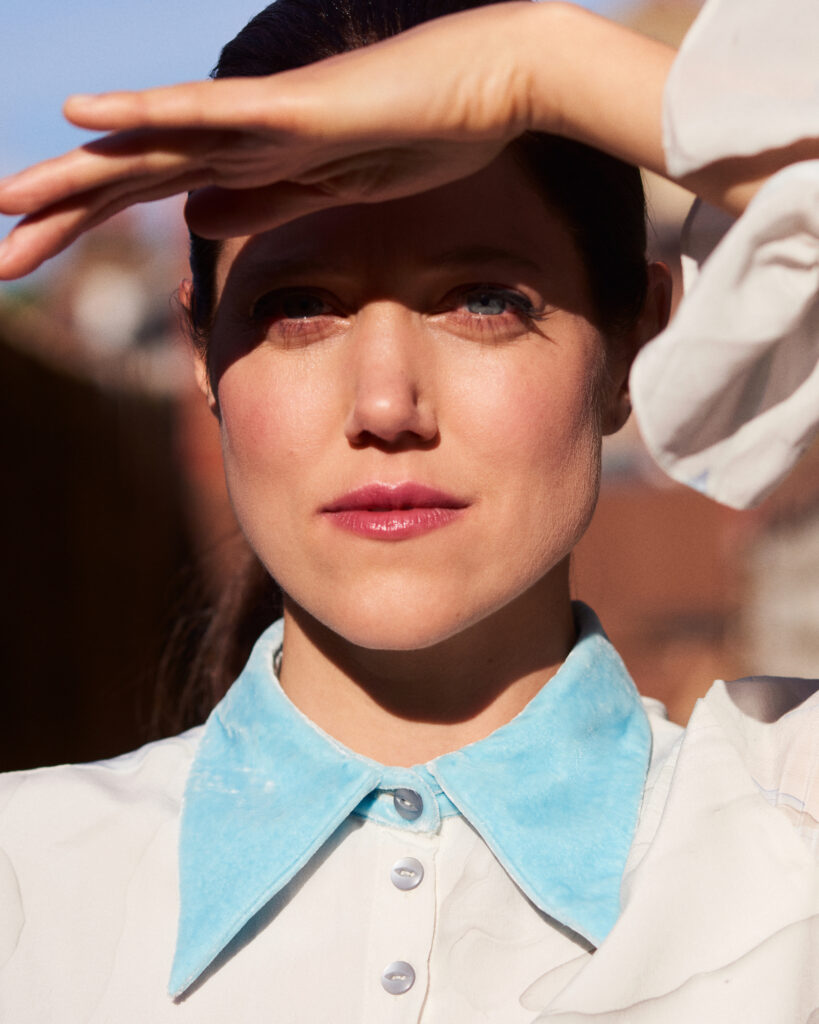
QUICK Q’S
Q: You’re not on set. Where can we find you?
A: In the garden, woods or sea.
Q: Dream role?
A: Ada Lovelace
Q: What’s the last movie/show that made you cry?
A: Watching the news this week.
Q: Role model?
A: Emma Gonzales. Xiuhtezcatl. Greta Thunberg. Malala. Janelle Monae. Morgan Lloyd Malcolm. Caroline Lucas. Jacinda Ardern. Michelle Obama.
Q: If you weren’t an actor, what would you be?
A: An environmental activist or a travel writer.
Q: Guilty pleasure?
A: Crisps.
Q: Most under-rated movie?
A: Baraka.
Q: Best advice you’ve ever received?
A: You exist now. Not in the future in the past. So do the best that you can do now, in this moment.
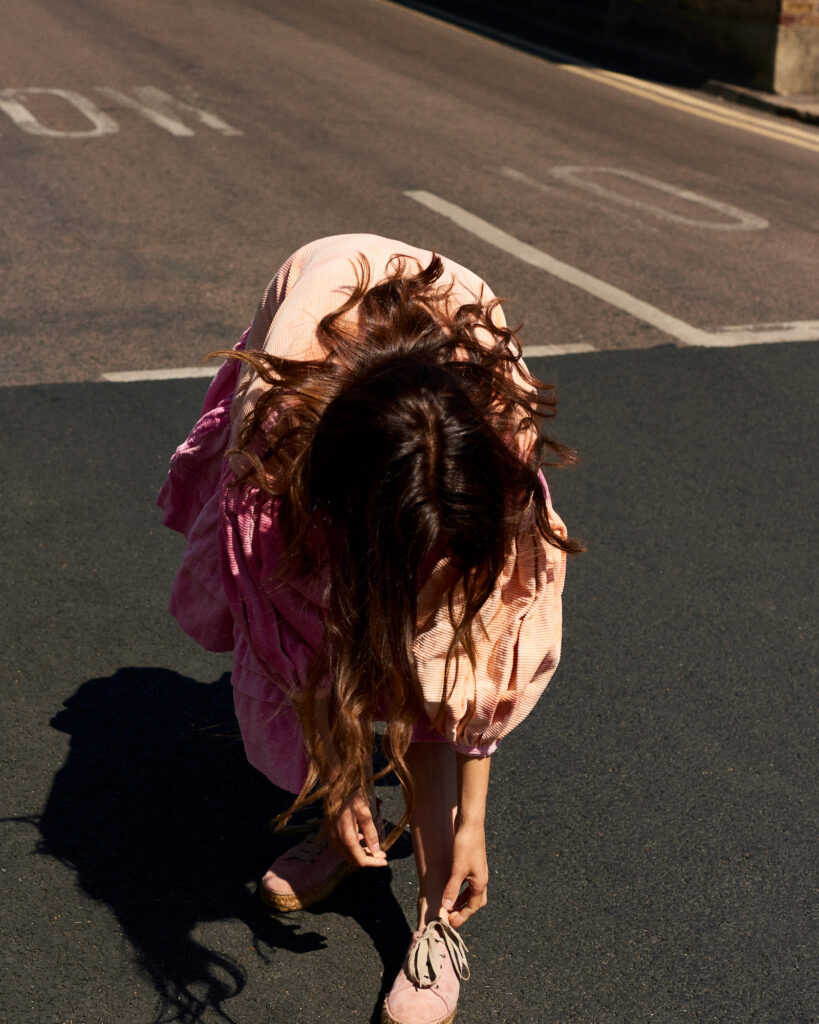
Dress: Story MFG at Matches fashion; Shoes: Actress own

